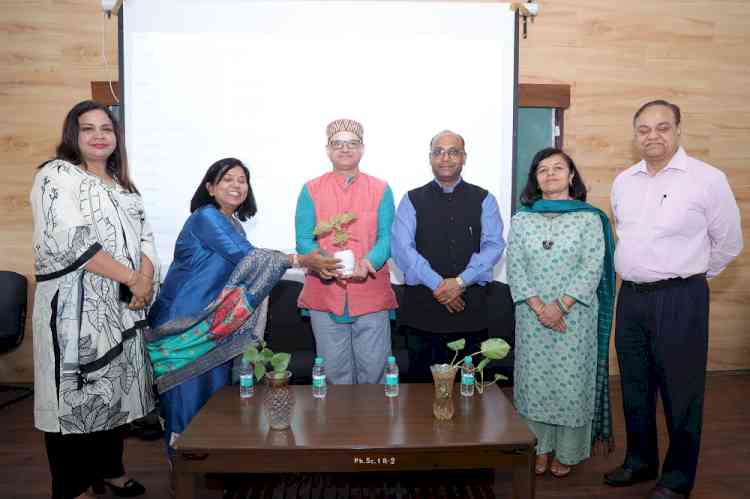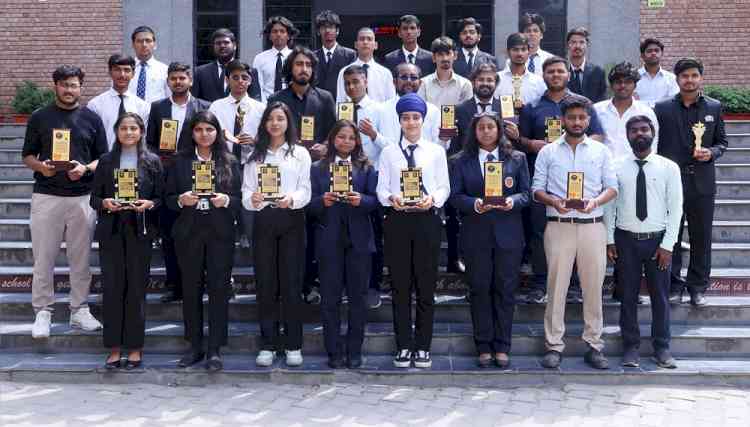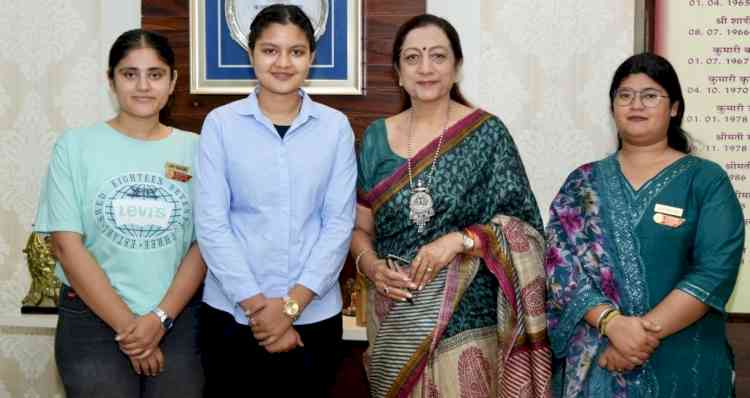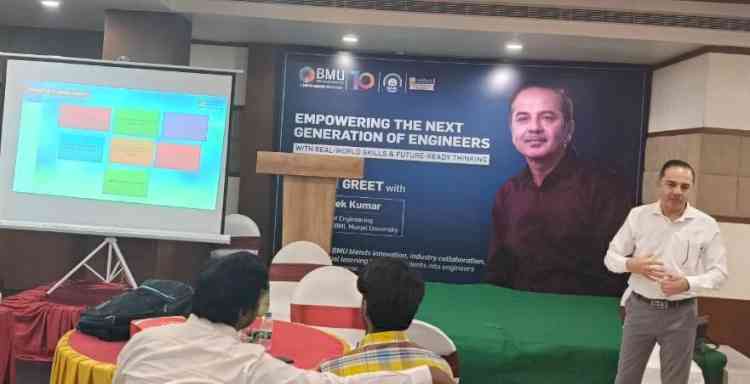Second day of 17th Chandigarh Science Congress (CHASCON)
Scientific sessions, lectures, paper presentations and quiz marked the second day of 17th Chandigarh Science Congress (CHASCON) at Panjab University (PU) here today.

Chandigarh, November 7, 2024: Scientific sessions, lectures, paper presentations and quiz marked the second day of 17th Chandigarh Science Congress (CHASCON) at Panjab University (PU) here today.
As many as 673 presentations were made in the various sections including 300 oral presentations and 373 poster presentations by researchers, scientists, undergraduate and graduate students from Panjab University and CRIKC institutes in various sections i.e., Basic Medical Sciences, Chemical Sciences, Dental Sciences, Earth and Environmental Sciences, Engineering Sciences, Management Sciences, Life Sciences, Mathematical Sciences, Pharmaceutical Sciences, and Physical Sciences.
There were 18 presentations made by Eminent Scientists from across the country about their respective study fields for the scientific sections. The winners will be getting the awards in valedictory function tomorrow.
Life Sciences include the Department of Anthropology, Botany, Forensic Science and Criminology and Zoology. The venue for Life Sciences section was the auditorium of Department of Botany, PU. Prof. Kamaljit Singh, from the Department of Botany was the Sectional President and Dr. Indu Sharma, Department of Zoology was the Sectional Secretary. Life Sciences section received a total of 234 registrations from the Faculties, PhD research Scholars and UG and PG students from PU and the neighboring university/institutes. Of this, 47 registrations were to participate in the oral presentation and 98 for the poster presentations.
The scientific session commenced with two keynote lectures delivered by Dr. Anupam Mittal, Assistant Professor, Department of Translational and Regenerative Medicine, PGIMER, Chandigarh and Prof. Ashok Kumar Bhatnagar, Former Professor and Head, Department of Botany, University of Delhi, New Delhi.
Dr. Mittal delivered an engaging talk to undergraduate and postgraduate students, introducing them to the fascinating realm of stem cells, with a focus on induced pluripotent stem cells (iPSCs). Emphasizing the importance of simplicity, he encouraged students to ask questions throughout the lecture. He discussed three types of stem cells: embryonic stem cells, adult stem cells found in bone marrow, and iPSCs. iPSCs, derived by reprogramming somatic cells using Yamanaka factors, bypass ethical concerns associated with embryonic stem cells. The talk also covered challenges and advances in iPSC research, including safer, non-integrative methods and chemically induced stem cells. Concluding his talk, Dr. Mittal emphasized the transformative potential of iPSCs in modern medicine and encouraged students to explore this promising field. With ongoing research focused on optimizing methods for creating organoids and enhancing personalized medicine, the future of iPSCs holds much promise.
Prof. Ashok Kumar Bhatnagar lecture was on the Relevance of Gm/Ge Technology to Food, Economy, and And Environmental Security of India. During his talk he highlighted India's vast potential for agricultural productivity due to its abundant sunlight, fertile soil, ample water resources, crop diversity, and supportive infrastructure. Despite self-sufficiency in food production, India faces paradoxical challenges, ranking high on the Global Hunger Index and having a rural economy that struggles due to systemic issues. He emphasized that over half of India's population is engaged in agriculture, using more than 50% of the country's land resources, compared to a global average of 12%. Yet, agricultural productivity remains low—only a third of what is achieved in the U.S. and Europe, and less than half of China’s output. Income disparity is stark, with rural income only a sixth of urban earnings, and agriculture accounts for over 80% of the country’s water usage.
Prof. Bhatnagar’s stressed the consequences of indiscriminate pesticide use, which impacts farmers' health and the food chain. He also made a note that the extensive cultivation limits forest cover to below the recommended 33%. Further, vast areas of wasteland could be reclaimed through appropriate technology, offering an opportunity for resource optimization.
To address these pressing issues, Prof. Bhatnagar advocates for advancements in genetic technology, suggesting that gene editing in crops could improve drought and salinity tolerance, pest resistance, and nutritional value, while boosting productivity. He emphasizes that Indian scientists, skilled across relevant disciplines, are well-suited to guide public understanding and build trust in the safety and benefits of GM and gene-edited agricultural technologies. These advancements, he argues, could play a transformative role in addressing socio-economic and environmental challenges in Indian agriculture.
The Scientific sessions were chaired by Dr. Ravinder Kumar, Chairman, Department of Zoology and Prof. Richa Puri, Department of Botany, Panjab University, Chandigarh.


 City Air News
City Air News 








